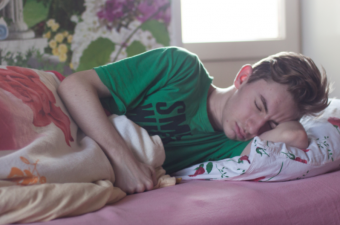Healthy ways to fall asleep faster
Do you find it hard to fall asleep at night? Do you find yourself reaching for an Ambien or ZzzQuil more often than you’d like?
First, know that you’re not alone, as 60 million Americans — lots of them students like us — admit to having experienced insomnia. But second, know that there are other ways to fall asleep faster without turning to medication.
Here are just five of the many possibilities:
- Hide your cell phone. Bright lights and electronics (like a television screen) are probably the two biggest reasons we fail to fall asleep when we should — there are lots of studies that support this theory. Avoid any temptation: sleep on one side of the bed, put your phone on the other side. Put it under a pillow or even in a drawer if you have to!
- Get warm. Studies have shown that regulating body temperature helps you fall asleep easier. For example, a warm shower before bed can make you tired, because the drop in temperature from the steamy shower to the chillier bathmat slows down normal body processes. Basically, the science says that we need to keep our bodies cool and our extremities warm. Wearing socks helps blood flow easier and helps us drift gently into sleep.
- Make a routine and stick to it. Remember that warm shower I mentioned? It can form a part of your new pre-bedtime routine. Think of all the information thrown at you on a daily basis in your classes and in your relationships. It just makes sense that you need time to wind down and clear your head before going to bed. Develop a nightly system wherein you cool down mentally and relax physically. This can involve some light meditation (check out the Headspace app for your phone), listening to jazz or classical music, maybe making yourself a light snack…whatever helps you unwind!
- Do some writing. Using a pen and paper in 2017 may seem…well, weird. But try scribbling a few thoughts about why you can’t get to sleep. A racing mind can stifle your efforts to get to sleep, even after you complete your pre-bedtime routine. The act of writing those thoughts down can go a long way toward clearing your head and planning ahead.
- Don’t try to sleep if you’re not feeling it. This will just serve to frustrate you more. Instead, get up and head into another room. Sit, chill, make yourself a cup of tea, but DON’T turn on that TV or pick up your iPhone, as the screens on those devices will keep you awake longer. Go back to bed only when you’re sure you can close your eyes and fall into a blissful slumber.
For more information:
https://sleep.org/articles/how-to-fall-asleep/
http://www.cnn.com/2015/04/22/health/fall-asleep-faster/index.html
